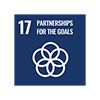Member organisations
Glencore holds membership in a broad range of industry organisations. Some of these are global in nature, while others have a regional, national or local focus. The structure and objectives of each organisation varies. Some represent a broad mix of companies and sectors and may cover a range of policy, business and sustainability topics, including climate change and energy. Others exist to address one or two topics that are key to their limited members. Each organisation implements their own governance structures and membership requirements that reflect their purpose and objectives.
Role of organisations
Industry organisations develop formal positions on a given topic by engaging with their members and considering their varying views. They represent their members in discussions with governments and other interested stakeholders during the development of public policies and legislation.
These organisations may use the shared resources of their member companies to conduct research, enhancing the scientific knowledge base over time. They can also contribute to the development of regulation and industry standards.
We generally identify industry organisations as:
- Multi-sectoral organisations with a diverse range of membership, which often focus on a region, country or province. Their primary role is to promote a business-friendly environment that encourages economic diversity and supports companies from a wide range of sectors.
- Extractive-sector organisations, which bring together companies from the extractive sector to develop either a sector- or commodity-specific response. Their work may involve advocacy on specific topics affecting the sector, such as climate change and energy or product stewardship, but more typically bring together companies to focus on addressing the sector’s challenges and opportunities. These activities could include improving occupational health through working with equipment manufacturers or developing a sector response to a topical issue such as the management of tailings storage facilities.
- Issue-specific organisations, which develop and promote an informed view on a specific issue. While these organisations may contribute to regulatory development, for Glencore, these organisations are more likely to provide a platform to share information and promote understanding.
Participating in industry organisations
At a global, national and local level, we participate in a broad range of industry organisations in which we are a member (our industry organisations). We participate in industry organisations to represent, promote, and protect the interests of our business. In addition, our industry organisations develop, implement, review and update industry-relevant standards, best practice, and guidance for the broad range of health, safety, environment, social performance and human rights (HSEC&HR) topics that affect the extractive sector.
Through our membership and participation in industry organisations, we can present our views and concerns and take part in discussions across a wide range of topics. In regions or for commodities that are material to us, we generally try to take a leadership role within the industry organisation, through holding a position on its board, or other governing body, to shape its direction and influence its positions.
In our industry organisations we try to be active participants in working groups, in person meetings and collaborative efforts. Participation provides an opportunity for us to strengthen our understanding of the topics affecting our industry, as well as to share practical examples and become informed of best practices. This provides the opportunity to hear different opinions and perspectives that in turn strengthen our understanding of industry-specific topics, as well as of broader topical regional and national issues. We share and receive examples of good practice and work together on developing and improving equipment and standards that benefit the extractive sector.
Industry organisations also provide a forum in which members can discuss and agree on an approach for engagement with government, regulators and other stakeholders on certain issues, such as climate change, transparency, local economic development or commodity-specific issues. We can play an informed and constructive role through our industry organisation memberships in the public policy development process and participate in discussions on issues related to clean energy, carbon reporting and carbon pricing.
We recognise that responsible political engagement is critical for building and maintaining trust in the political process. Through enabling public decision-makers to hear legitimate points of view from industry participants, we can support effective policy decisions that address the interests of a broad range of stakeholders.
As one member among a wide membership base, we can share our perspective and opinion, but this may not be the final position taken by the organisation.
We believe that industry organisations, through their membership, can act as a catalyst to bring about sustainable improvements to the extractive sector, which, in turn may generate positive benefits for economies and society. They provide a platform for debate and understanding of differing views.
Our approach to membership
Our Values, Code of Conduct and Political Engagement Policy set out our expectations for our engagement, whether direct or indirect, in public policy developments or emerging regulations.
We require everybody working at Glencore to adhere to our principles on membership of industry organisations.
Purpose of membership
We may become members, either at the Group level or as an individual commodity department or industrial asset, in industry organisations to contribute towards the setting of industry standards and the development of government policies and regulation, as well as to share non-competitive industry-related information. Glencore participates in industry organisations to represent, promote and protect the interests of our business. Our participation should support a collaborative, collective approach that achieves more than acting alone. Our membership in relevant industry organisations should not undermine our support for the goals of the Paris Agreement.
Governance
We regularly review the organisations in which we participate, including their strategic fit with our corporate purpose, Values, Code of Conduct and positions on material topics. Our Board Ethics, Compliance and Culture Committee receives and evaluates an annual internal review of our membership of industry organisations and those organisations’ activities. Our Political Engagement Policy sets out our approach and the general requirements in connection with our engagement in policy development.
Transparency
We annually report on our membership of industry organisations and our roles and activities within these organisations. We will take steps to ensure that our industry organisations undertake transparent engagement with public officials and government authorities. We expect our industry organisations to publish their positions on public policies.
Monitor and review
Prior to joining an industry organisation, we evaluate its existing positions, strategies and objectives for alignment with our own. Once members, we monitor industry organisations’ activities to ensure consistency with our positions.
We acknowledge that industry organisations represent a range of members with different views across multiple policy areas, and, as a result, the representations they make may not always fully reflect our positions on material topics.
Misalignment
If an industry organisation adopts an approach inconsistent with our Values, Code of Conduct and Political Engagement Policy, or the goals of the Paris Agreement, we will take appropriate action. This may include:
- constructively engaging with the organisation; and/or
- resigning from that organisation and establishing independent advocacy
Use of funds
We expect our industry organisations to comply with local regulations and to maintain appropriate governance and transparency in relation to the use of funds or resources in connection to political parties, political organisations or their representatives either directly or indirectly
Principles we follow
-
 UN Global CompactVisit the website
UN Global CompactVisit the website -
 Principle 9Read more
Principle 9Read moreencourage the development and diffusion of environmentally friendly technologies
-
ICMMVisit the website
-

-

-
 UN SD GoalsVisit the website
UN SD GoalsVisit the website -

-


